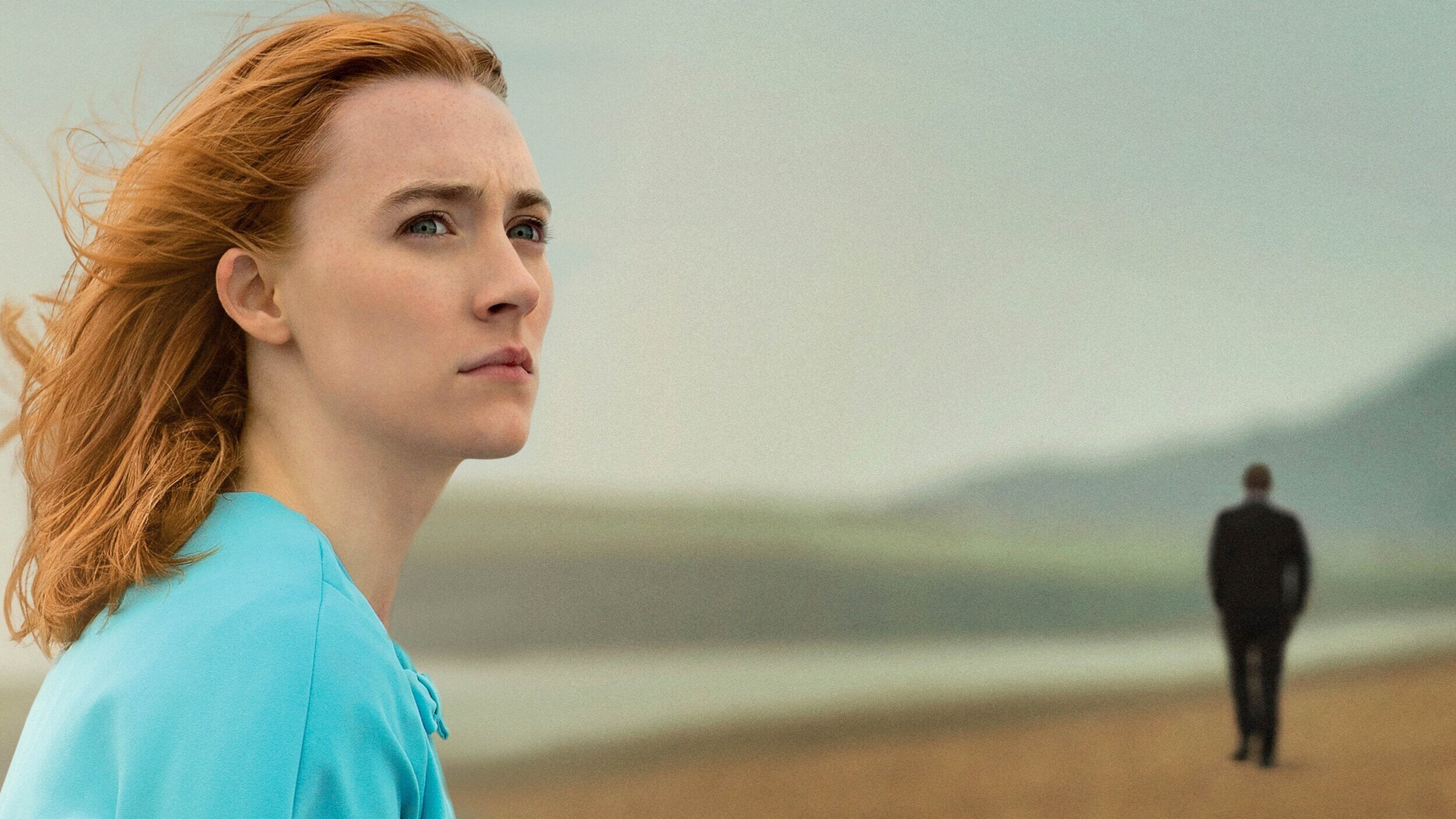On Chesil Beach
What might have been an unusual and touching love story runs aground.
The agony of innocence: Saoirse Ronan
This film is embarrassingly inept and that comes as a surprise given all the talent involved. On paper it is highly promising since the story told, an adaptation by Ian McEwan of his own short novel, is pleasingly out of the ordinary and the casting is such that we would not expect to be let down by the actors. On Chesil Beach is a drama that takes place on the wedding night of the two central characters, Florence (Saoirse Ronan) and Edward (Billy Howle) who, coming from different backgrounds (hers being much more upper class), meet as students at Oxford and experience love at first sight.
The year - a precise choice on McEwan's part - is 1962, that being a time before the sexual revolution that occurred later in the decade. Consequently, it is still a time when open talk about sex was rare and it was not unusual for a couple to enter into marriage as virgins. That is what happens in the case of Florence and Edward honeymooning in Dorset and, when their unease and inexperience generate tensions, it proves calamitous. Thus, it is that On Chesil Beach sets out to be both a potentially tragic personal story and a reflection on social history.
Most of what goes wrong would appear to be down to McEwan himself. Several other works of his have been turned into films but most of these adaptations were done by others. Here he was keen to write the screenplay himself but, when spoken on screen, his dialogue frequently sounds unpersuasive, It largely defeats the two leading players: given all her good work elsewhere, Ronan can afford a dud but it is unfortunate that the talented Billy Howle should suffer in this way because, after his promising supporting role in The Sense of an Ending, Edward should have been the part to make him a star. Also involved, mainly in flashbacks, are Emily Watson and Samuel West in what come over as caricature portrays of Florence’s upper-class parents and Anne-Marie Duff and Adrian Scarborough who, as Edward’s parents, are given extra drama (the mother suffers from brain damage in an accident) that is left undeveloped.
The often unconvincing dialogue is far from being the only fault. The flashbacks, which keep emerging to make the wedding night seem like an eternity, are mentioned in the publicity notes as having been re-ordered from what was originally scripted: that very fact underlines the clumsy nature of these insertions. And then there’s the decision, be it that of McEwan or of theatre director Dominic Cooke here making his first feature, to have scenes play out to the accompaniment of chamber music extracts. Just because Florence plays in a string quartet, music of this kind is allowed to proliferate behind many a scene adding an artificial feeling to what should be a realistic portrayal of the mid-twentieth century. And, yes, a coda set mainly in 2007 comes across as something of a cliché and highly sentimental with it. The actors do not disgrace themselves but cannot save the film.
MANSEL STIMPSON
Cast: Saoirse Ronan, Billy Howle, Anne-Marie Duff, Adrian Scarborough, Emily Watson, Samuel West, Bebe Cave, Mark Donald, Tamara Lawrance, Anna Burgess, Mia Burgess, Bronte Carmichael.
Dir Dominic Cooke, Pro Elizabeth Karlsen and Stephen Woolley, Screenplay Ian McEwan, from his novel, Ph Sean Bobbitt, Pro Des Suzie Davies, Ed Nick Fenton, Music Dan Jones, Costumes Keith Madden.
Number 9 Films/BBC Films-Lionsgate UK.
110 mins. UK/USA. 2017. Rel: 18 May 2018. Cert. 15.


